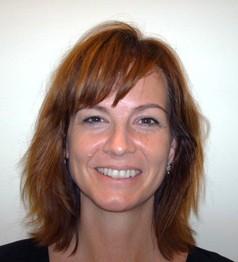The church is often called into the public square to respond to injustice and seek change. It’s from this stance that the PC (USA)’s Office of Public Witness led a workshop at Big Tent 2015 to discuss ways in which the church and its members can address the root causes of injustice.
Led by Catherine Gordon, associate for international issues with the Office of Public Witness (OPW) located in Washington, D.C., the workshop featured a discussion on many interconnected issues facing our society—poverty, education, mass incarceration and inequitable trade policies. It also provided an interactive setting in which participants were given guidance and concrete tools for implementing change through effective advocacy principles.
“We all care about a lot of different issues,” said Gordon. “But without a concrete plan of action, it can be overwhelming to become effective advocates for implementing change.”
Gordon listed a wide range of international advocacy priorities in the coming year for the small OPW D.C-based staff, including fair trade, peace in the Middle East, a diplomatic solution in dealing with the conflict in Iran, defending human rights in Columbia and the Congo and legislation to monitor U.S. drone use. She stressed that partnering with the ecumenical and NGO communities, such as the United Church of Christ, the United Methodist Church and Public Citizen, are necessary for effective advocacy in a global environment.
“The more like-minded people that you can gather together to advocate for your issue, the stronger you are,” said Gordon. She cited Cuba as an example. “I think one of the reasons that we’ve been successful in advocating policy change with regards to Cuba is that not only was the faith community speaking out, but also the business and the human rights communities were speaking out against the current policy.”
Before breaking participants into small groups, who were instructed to identify an issue and develop their own sample advocacy “campaign,” Gordon provided some insight into the advocacy lifecycle, which consists of:
1) Identifying and analyzing the issue – what’s the problem?
2) Setting the goals and objectives – what do you want to achieve?
3) Identifying the decision makers – who do you need to influence?
4) Defining the message and the “ask” – what is your clear request or recommendation?
5) Setting a timeline – when should you say it?
6) Accessing resources, choosing tactics and implementing – how will you do it?; and
7) Monitoring, evaluating and sharing – how will you measure success?
The Office of Public Witness operates on a worldwide scale for policy change. Gordon referenced Cuba again, pointing out that the church advocated for policy change and repealing the U.S.-Cuba trade embargo for nearly 50 years. She stated that while the toolkit presented in the session applies to a direct advocacy model, it can also be used as a model to create and generate community-level movements.
-----
For more information on implementing advocacy programs or campaigns, please contact Catherine Gordon in PC (USA)’s Office of Public Witness at Catherine.gordon@pcusa.org.

